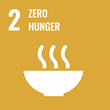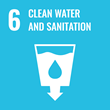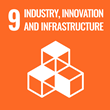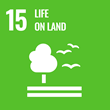Project information
From Waste to Resource - Recycling Sewage Sludge Ash into Phosphate-rich Plant Fertilizer
(PHOS4PLANT)

- Project Identification
- ATCZ00043
- Project Period
- 5/2024 - 4/2027
- Investor / Pogramme / Project type
-
Ministry for Regional Development of the CR
- Interreg Austria-Czech Republic (2021-2027)
- MU Faculty or unit
- Faculty of Science
- Cooperating Organization
-
Brno University of Technology
- Responsible person Doc. Ladislav Janíček
- Responsible person Priv.-Doz. Dipl.-Ing. Dr. Günter Langergraber
- Responsible person Dipl.-Ing. Thomas Bürgler
Phosphorus is an essential element for all living organisms. However, global phosphorus supplies are limited, so phosphorus recycling is receiving much attention. Due to its significant importance in fertilizer and food production and its heavy dependence on imports, phosphorus is on the EU's list of critical raw materials. Fly ash from the incineration of sewage sludge is one of the most promising secondary sources, as it contains significant amounts of phosphorus. The disadvantage of ash as a secondary source of phosphorus is the presence of heavy metals. The PHOS4PLANT project aims to optimize sewage sludge incineration processes and recover phosphorus from fly ash by bioleaching. Heavy metals will be separated from the bioleachate by employing bioelectrochemical processes and fractional precipitation. The bioavailable phosphorus obtained will be applied as fertilizer to the soil with selected valuable plants. Then, the growth parameters of their root system and aboveground part, heavy metal content, and microbial diversity in soil and plants will be monitored.
Sustainable Development Goals
Masaryk University is committed to the UN Sustainable Development Goals, which aim to improve the conditions and quality of life on our planet by 2030.
Publications
Total number of publications: 1
2024
-
Substrate limitation in bioleaching cultures of sulfur-oxidizing bacteria
Biotechnology and Metals 2024, year: 2024



